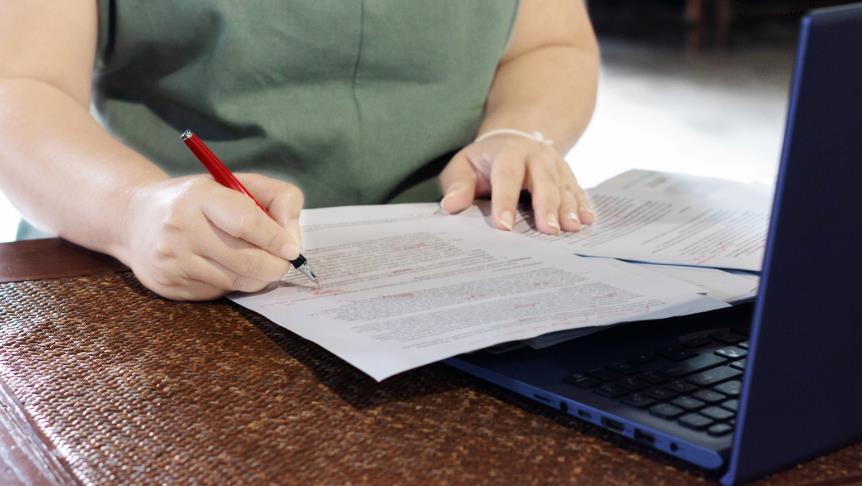This week sees the much-anticipated launch of www.lexacademic.science, a boutique scientific editing platform offering white-glove proofreading and copy-editing services to STEM researchers and clinician scientists across the globe. But the company does so much more than this. With a mission to combat linguistic injustice within academia and beyond, and a blog space offering free advice to scientific researchers, the progressive brand is set to level the playing field for international STEM researchers at all stages of their career. This should come as no surprise given the proven track record of its parent company, Lex Academic, in sponsoring in sponsoring prizes related to linguistic discrimination and women in academia, as well as offering humanities scholarships for dyslexic graduate students in Classics and Philosophy.
 The new technical wing of Lex Academic has announced a new scholarship for dyslexic postgraduate students working in STEM and STEM-adjacent disciplines. The company recognizes the important contribution of dyslexic individuals to academic research and broader society.
The new technical wing of Lex Academic has announced a new scholarship for dyslexic postgraduate students working in STEM and STEM-adjacent disciplines. The company recognizes the important contribution of dyslexic individuals to academic research and broader society.
In the words of Lex Academic CEO and lexacademic.science co-founder, Louise Rebecca Chapman:
We believe that exceptionally promising dyslexic students deserve investment and support, helping them and the world realize the potential of their ideas. Following the success of the 2022 Lex Academic Classics Scholarship, we are pleased to announce a new scholarship for dyslexic scholars in STEM and STEM-adjacent disciplines. The scholarship is designed to facilitate the contribution of dyslexic individuals to academic research, industry, and society more generally.
The Lex Academic STEM Scholarship 2023 shall be awarded to a student studying a STEM subject to postgraduate level. In addition to a bursary of £500, the winner will receive Lex’s five-star proofreading gratis for their entire thesis. To be eligible to apply for an award, applicants must have been diagnosed with dyslexia by an educational psychologist.
They will need to supply evidence of their diagnosis, which will be treated confidentially. Candidates who meet the requirements must also have an admissions offer for a postgraduate degree that includes a thesis or extended project component. Candidates may apply for an award even if they have already begun their degree. While there are no country restrictions for these awards, the candidate’s thesis must be written (primarily) in English.
Applicants should email the required proof to [email protected] before the end of Tuesday 1 August, 2023, alongside an abstract of their planned thesis and a brief statement about how the scholarship would help them. The panel aims to make a decision by Wednesday 1 November, 2023.
Last year’s scholarship was awarded to Leah Wild (Christ’s College, University of Cambridge) for her impressive ongoing doctoral research, Manufacturing miniaturisation: The making of miniature deities in the Greco-Roman world. Leah writes:
As a disabled academic, I face a double bind, whereby my work is held to the same standards as my peers and colleagues, as is only right in the struggle towards intellectual rigour, and yet, the outward trappings of this, like spelling, continue to elude me. This was compounded by my choice of field: Classics. The study of Greco-Roman antiquity requires proficiency in Latin and Ancient Greek. Your support, both financial and through access to your editorial services, will ensure that my work is judged on the quality of its content. Clarity of communication is important, and I recognise the need for spelling and grammar to be as accurate and precise as possible. With your help, I will be able to achieve all that I set out to do. Your support will help to make all the difference.
Scientific editing for researchers by researchers
Lex Academic is committed to helping the world’s most promising science researchers publish in the best possible research outlets, pushing the envelope of knowledge while levelling the academic playing field. Their shared understanding of the STEM publishing space gives our team a uniquely compassionate insight into the process of refining work for peer review and making a strong impression with leading journals, publishing houses, and funding bodies.
 Lex Academic and Lex Academic.science are author services companies with a humane mission. Spearheaded by Oxbridge-educated research academics, Constantine Sandis and Louise Rebecca Chapman, together they boast twenty years’ editorial experience and over one hundred research publications between them. Empowering STEM researchers with exceptional scientific proofreading, copy-editing, indexing, translation, and permissions clearance, Lex Academic strongly believe that language should never constitute a barrier to scientific publication. That is why a proportion of their annual profits is put towards charitable ventures such as the Lex Academic STEM Scholarship, which supports students with dyslexia.
Lex Academic and Lex Academic.science are author services companies with a humane mission. Spearheaded by Oxbridge-educated research academics, Constantine Sandis and Louise Rebecca Chapman, together they boast twenty years’ editorial experience and over one hundred research publications between them. Empowering STEM researchers with exceptional scientific proofreading, copy-editing, indexing, translation, and permissions clearance, Lex Academic strongly believe that language should never constitute a barrier to scientific publication. That is why a proportion of their annual profits is put towards charitable ventures such as the Lex Academic STEM Scholarship, which supports students with dyslexia.
Whether you are a non-native speaker of English, a dyslexic researcher, a PhD student seeking to avoid minor corrections, or a science researcher who could simply use some help in polishing your prose, make sure to check out lexacademic.science and to recommend it to all of your colleagues and graduate students. This is a scientific editing company with a much-needed difference.

